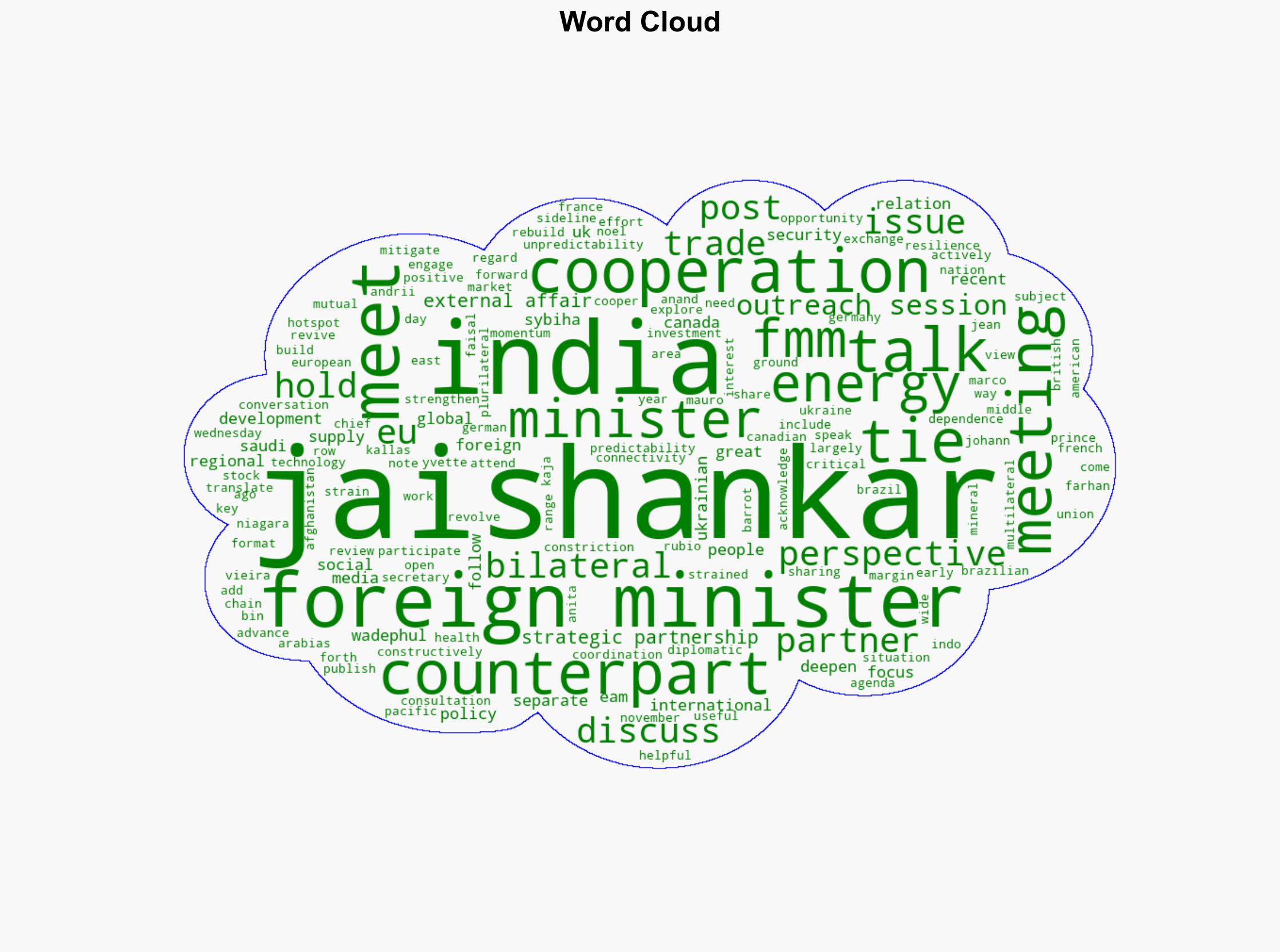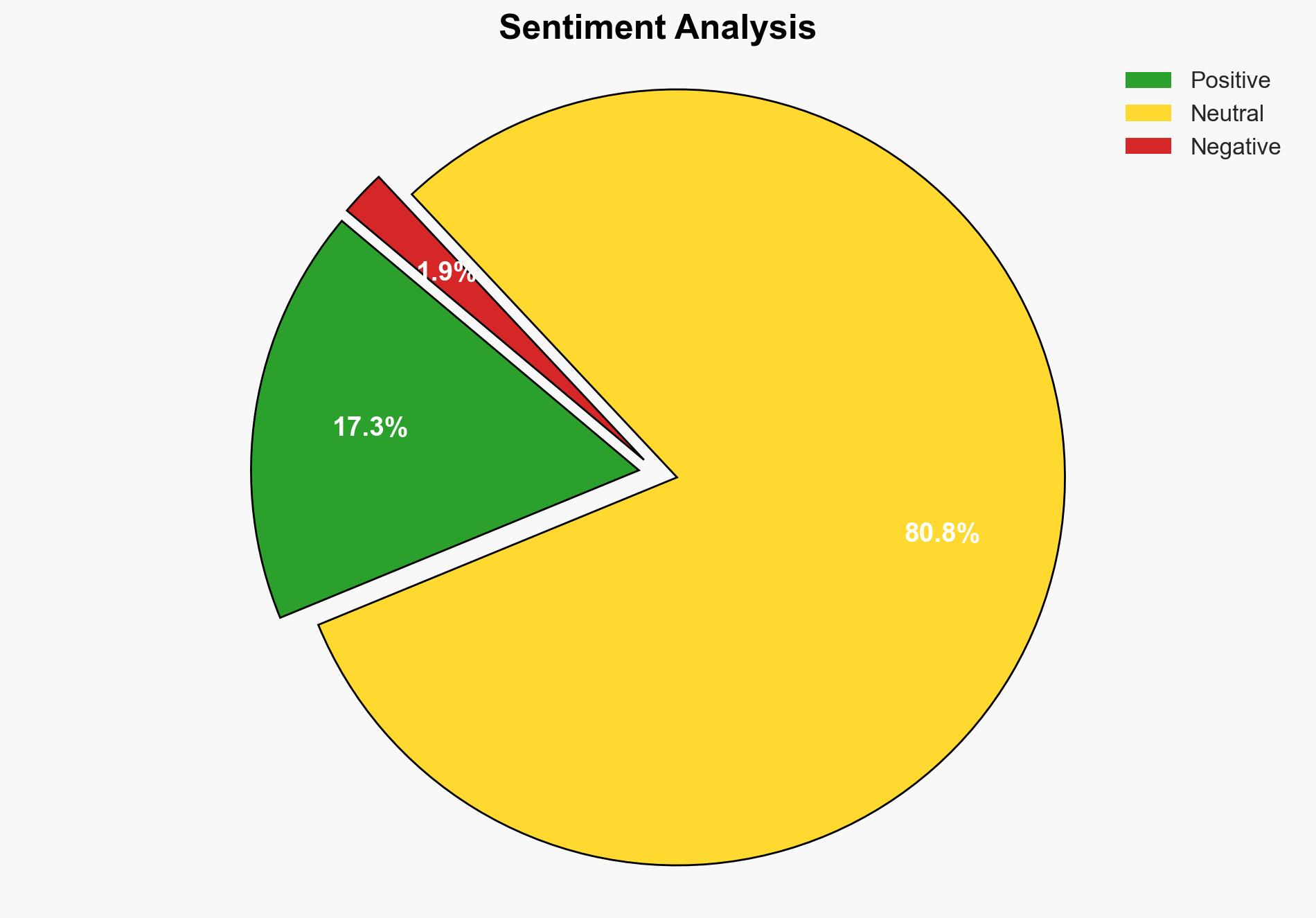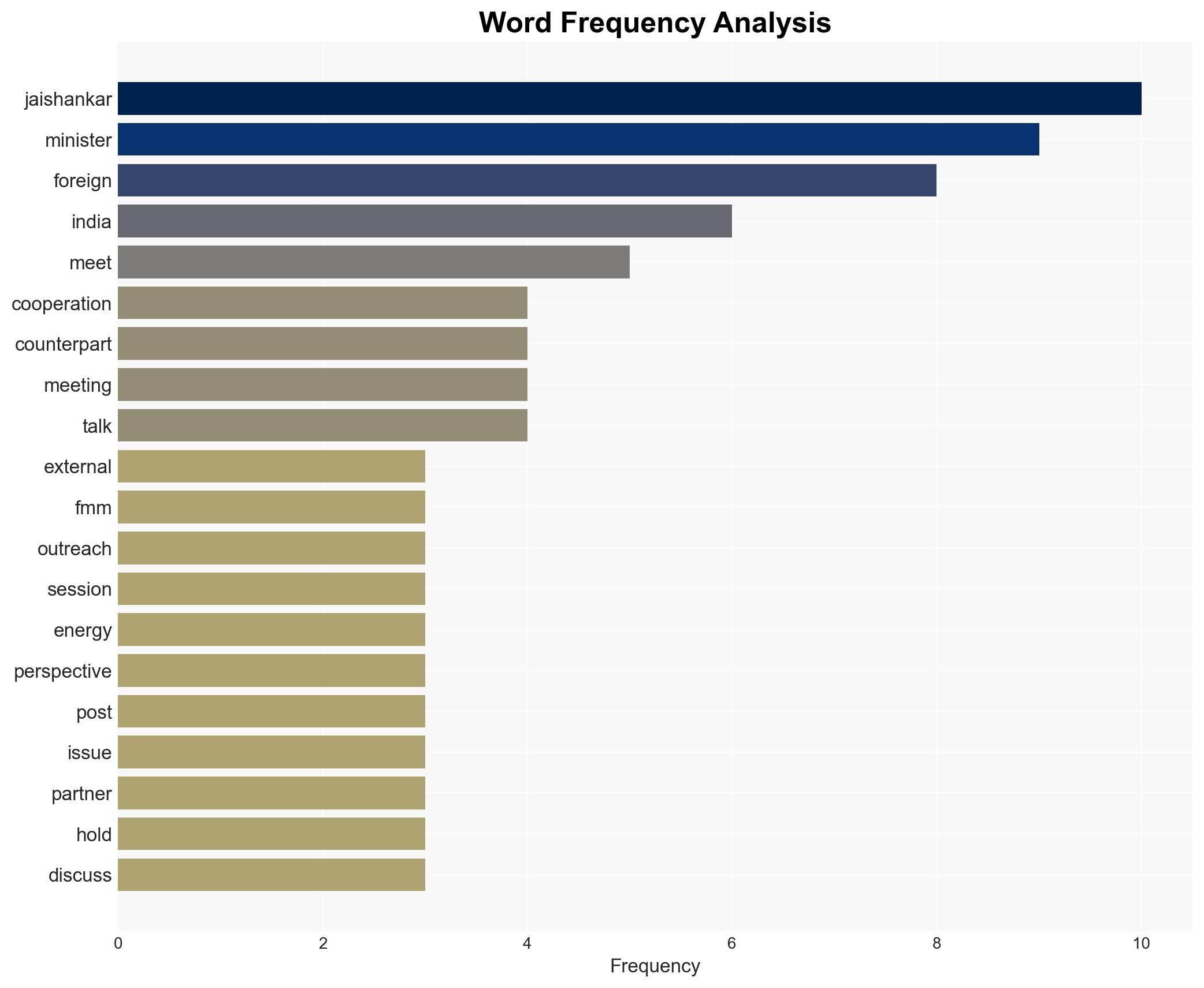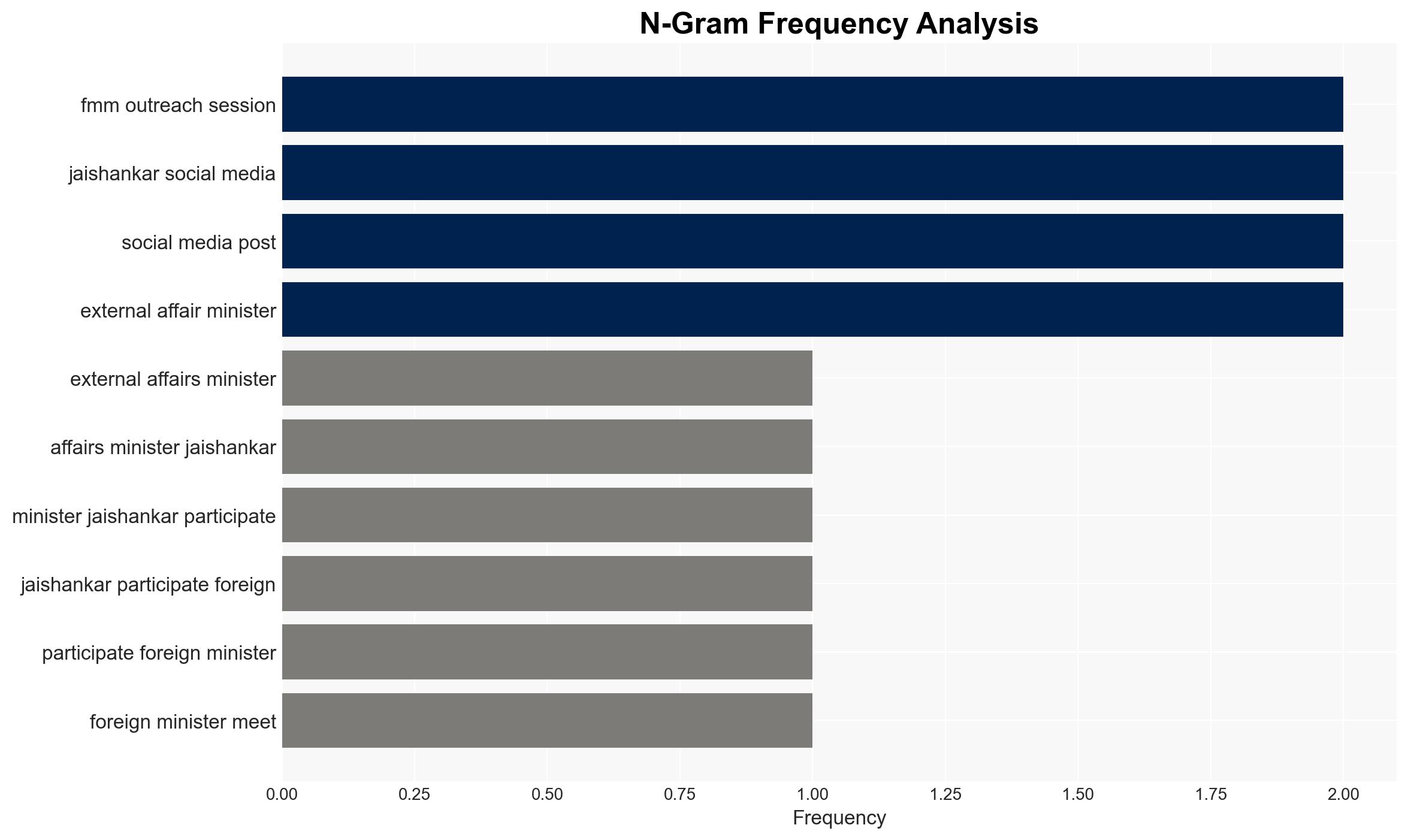Jaishankar calls for global cooperation on energy security critical minerals at G7 meet – BusinessLine
Published on: 2025-11-13
AI-powered OSINT brief from verified open sources. Automated NLP signal extraction with human verification. See our Methodology and Why WorldWideWatchers.
Intelligence Report: Jaishankar calls for global cooperation on energy security critical minerals at G7 meet – BusinessLine
1. BLUF (Bottom Line Up Front)
With a moderate confidence level, it is assessed that India’s call for global cooperation on energy security and critical minerals at the G7 meet is primarily aimed at strengthening its strategic partnerships and enhancing its influence in global supply chain discussions. The most supported hypothesis is that India seeks to position itself as a key player in the global energy transition dialogue, leveraging its diplomatic engagements to secure favorable terms and alliances. Recommended actions include enhancing diplomatic efforts to solidify partnerships and investing in domestic capabilities to reduce dependency on external sources.
2. Competing Hypotheses
Hypothesis 1: India is genuinely seeking to lead a collaborative international effort to address global energy security and critical mineral supply challenges, aiming to mitigate market unpredictability and strengthen resilience.
Hypothesis 2: India’s engagement is primarily driven by strategic interests to secure its own energy and mineral needs, using the platform to bolster its geopolitical influence and economic leverage.
The second hypothesis is more likely given India’s recent diplomatic activities and focus on strengthening bilateral and multilateral ties, particularly in areas related to trade and supply chains.
3. Key Assumptions and Red Flags
Assumptions: It is assumed that India has the capacity and willingness to lead or significantly influence international cooperation in energy security. It is also assumed that other nations are receptive to India’s leadership in this domain.
Red Flags: Potential overestimation of India’s influence and capacity to drive global policy changes. Possible resistance from other major players who may perceive India’s actions as self-serving.
Deception Indicators: Public statements may not fully reflect behind-the-scenes negotiations or strategic intentions.
4. Implications and Strategic Risks
Failure to achieve meaningful cooperation could exacerbate global supply chain vulnerabilities, leading to increased geopolitical tensions. Economically, India risks over-reliance on external sources if domestic capabilities are not developed. Politically, unsuccessful diplomacy could weaken India’s standing in international forums.
5. Recommendations and Outlook
- Enhance diplomatic engagements with key partners to secure commitments on energy and mineral cooperation.
- Invest in domestic research and development to reduce dependency on critical mineral imports.
- Best-case scenario: India successfully leads a coalition that addresses global energy security challenges, enhancing its geopolitical standing.
- Worst-case scenario: Diplomatic efforts fail, leading to increased competition and tension over critical resources.
- Most-likely scenario: Incremental progress in partnerships with select nations, with limited immediate impact on global supply chains.
6. Key Individuals and Entities
Jaishankar (India’s External Affairs Minister), Andrii Sybiha (Ukrainian Foreign Minister), Prince Faisal bin Farhan (Saudi Foreign Minister), Kaja Kallas (EU Foreign Policy Chief), Marco Rubio (American counterpart), Anita Anand (Canadian counterpart), Jean Noel Barrot (French Foreign Minister), Mauro Vieira (Brazilian Foreign Minister), Johann Wadephul (German Foreign Minister), Yvette Cooper (British Foreign Secretary).
7. Thematic Tags
Regional Focus: India, Global Energy Security, Critical Minerals, International Diplomacy, Supply Chain Resilience
Structured Analytic Techniques Applied
- Causal Layered Analysis (CLA): Analyze events across surface happenings, systems, worldviews, and myths.
- Cross-Impact Simulation: Model ripple effects across neighboring states, conflicts, or economic dependencies.
- Scenario Generation: Explore divergent futures under varying assumptions to identify plausible paths.
- Cognitive Bias Stress Test: Structured challenge to expose and correct biases.
Explore more:
Regional Focus Briefs ·
Daily Summary ·
Methodology





